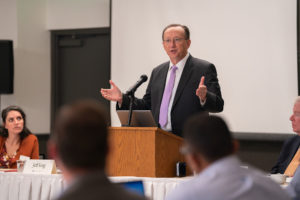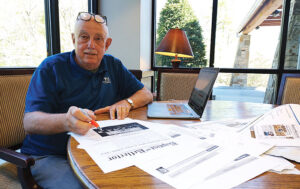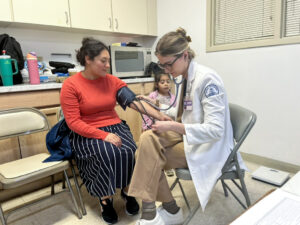
BALTIMORE (BP) — In an election night that can only be described as historic for gay marriage supporters, voters in two states and potentially a third Nov. 6 embraced marriage redefinition, breaking a streak that had seen them lose in 32 states dating back to 1998.
All of the vote totals were fairly close and all took place in left-leaning states, but it nevertheless was a landmark night for gay activists who had longed to see citizens of a state embrace gay marriage at the ballot.
In Maine, gay marriage won, 53-47 percent, three years after it lost by an identical margin.
In Maryland, gay marriage was victorious, 52-48 percent.
In Washington, the race had not been called but gay marriage held a 52-48 percent lead.
And in Minnesota, a constitutional amendment that would have defined marriage as between a man and a woman lost, 51-48 percent.
It was not the first time that a marriage amendment lost — Arizonans defeated a marriage amendment in 2006 only to pass one two years later — but it was the first time an amendment lost when the subject focused solely on gay marriage. Opponents of the Arizona amendment in 2006 spotlighted side issues such as benefits for elderly couples.
Also during the landmark night for gay activists, the U.S. president who propelled their issue forward was re-elected to a second term and the U.S. Senate gained its first openly gay member, Wisconsin Democrat Tammy Baldwin.
Derek McCoy, chairman of the Maryland Marriage Alliance, the traditional coalition that campaigned against gay marriage legalization, said the issue isn’t going away.
“Our biggest job is to make sure we … stand strong for what we believe in,” McCoy said Wednesday (Nov. 7) during a Family Research Council webcast. “Over a million voters voted that marriage should be defined between a man and a woman in the state of Maryland.”
McCoy wrote in an email to supporters, “We will continue to work without ceasing to advocate for marriage and will be there on the frontlines as the consequences of this same-sex marriage law manifest.”
Gay marriage backers hope the night’s big wins serve as a turning point to legalize gay marriage in all 50 states, but that issue could be decided not by the voters but next year by the U.S. Supreme Court, which is considering whether to take up cases involving the federal Defense of Marriage Act and California Proposition 8. The justices could announce this month whether they will hear the cases in what potentially could be the issue’s “Roe v. Wade.”
Not counting Washington state, eight states now recognize gay marriage, although the laws in Maine and Maryland won’t take effect until January. Thirty states have constitutional amendments defining marriage as between a man and a woman.
“We’ve won a landslide victory for equality at the ballot box,” said Chad Griffin, president of the gay organization Human Rights Campaign. “… But tonight’s most important message — the one we can’t afford to forget — is that we’ve got so much work left to do.”
The victories for gay marriage advocates took place in “blue” states — friendly territory — but they previously had lost in similar left-leaning states such as Michigan, Wisconsin, Oregon and California.
Gay marriage advocates outspent traditional groups by margins of 3-to-1 and 4-to-1 in the four states, but that had been the case in most other states, too, where marriage had been on the ballot.
A number of factors led to the landmark night for gay marriage activists:
— the country’s changing attitudes on the issue (although the two sides disagree over how fast the change is taking place).
— President Obama’s endorsement of gay marriage, which boosted the issue in states where he already was favored to win big.
— the sheer number of states (three) that voted on the issue, which prevented traditional voters from focusing their resources on one state. When California voted on gay marriage in 2008 and Maine in 2009, no other states were voting on the issue. With three states voting directly on gay marriage on Election Day, traditional groups’ resources were divided. That meant TV ads were launched in early to mid-October, later than desired. When California considered Prop 8 in 2008, ads went on the air in late September.
— a huge financial advantage. Traditional groups were outspent by margins of around 4-to-1.
TV ads sponsored by traditional groups this year warned that legalization would lead to gay marriage being taught as normative in schools. Ads also said it would lead to threats, lawsuits and even the firing of people who support the traditional definition of marriage. The ads gave an example for each charge.
McCoy, who is black, said African Americans in Maryland did not oppose gay marriage by the margins needed to defeat the measure there. President’s Obama’s embrace of gay marriage as well as the NAACP’s endorsement of gay marriage and pro-gay marriage TV ads featuring black pastors all had an impact, he said.
“Everything they did was pitched toward the African American community,” McCoy said of the ads by gay marriage supporters. “They had time to gear up with an advertising campaign in addition to [Obama’s] statement that did penetrate and persuade people.
McCoy added, “In that community, when we talk to people on the street, they still really don’t believe in changing the definition of marriage. It was more about this whole concept of fairness or equality or civil rights that was the issue for them. But they do not necessarily believe that marriage should be redefined.”
–30–
Michael Foust is associate editor of Baptist Press. Get Baptist Press headlines and breaking news on Twitter (@BaptistPress), Facebook (Facebook.com/BaptistPress ) and in your email ( baptistpress.com/SubscribeBP.asp).















